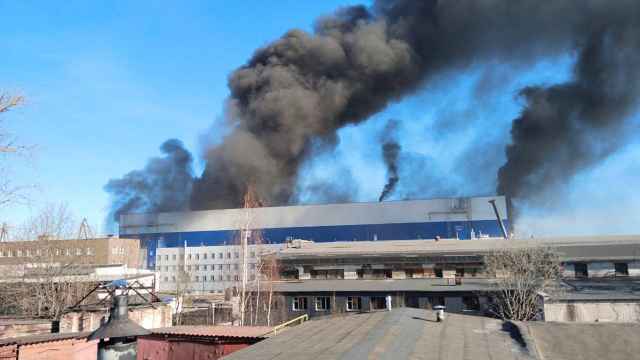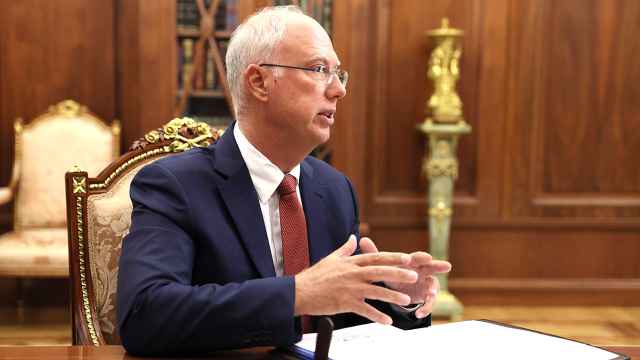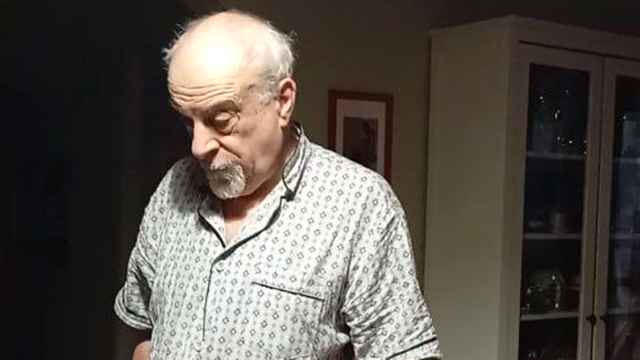KIEV/BRUSSELS — Ukraine's parliament backed the first reading of a bill to impose sanctions on Russian companies and individuals on Tuesday, a move that has raised concern in Europe about energy supplies from Russia.
Ukrainian Prime Minister Arseny Yatsenyuk said last week that the sanctions could be imposed against 172 citizens of Russia and other countries and against 65 Russian companies, including gas export giant Gazprom, "for financing terrorism."
Ukraine said Monday that European energy companies would have to agree major contract revisions when purchasing Russian natural gas if parliament approved imposing sanctions on Gazprom . Parliament has scheduled a second reading of the bill for Thursday.
Russia is Europe's biggest gas supplier, meeting almost a third of the region's demand, about half of which flows to European clients via Ukraine. European utility companies are worried that Ukrainian sanctions could disrupt supplies during the coming winter.
Ukraine's gas grid, Naftogaz, said Monday that the sanctions could limit or even exclude some companies from piping gas through the country but did not refer directly to Gazprom. It said this would allow other firms to take over transit operations in Ukraine.
"The main idea is [that] transit could continue with no problems if this gas is bought at our eastern border [with Russia] by, let's say, European companies," a Naftogaz spokeswoman said.
Current supply contracts with European utilities are for delivery of Russian gas into the EU via Ukraine, with Naftogaz receiving a transit fee.
The European Union said gas contracts may need to be renegotiated.
"We have raised the issue of the draft law again this morning in a phone call with our Ukraine partners," European Commission Vice-President GЯnther Oettinger said. "We are confident that Ukraine remains a reliable transit partner."
"Naftogaz's idea that European gas companies could buy Russian gas at the Russian-Ukrainian border instead of getting it delivered through Ukraine requires a renegotiation of the transit contracts," Oettinger said.
"This cannot be done in the short term — it is a question that would need to be discussed in a trilateral meeting between the European Commission, the Russian Federation and Ukraine," Oettinger said, adding that the Commission was planning such a meeting for early autumn.
Russian gas flows to Ukraine have been halted three times over the past decade, affecting supplies to the European Union, by contract and pricing disputes between Moscow and Kiev.
Russia halted gas supplies destined for Ukrainian customers in June because of a row over pricing, but Russian gas transit through Ukraine to Europe has been unaffected so far.
A Message from The Moscow Times:
Dear readers,
We are facing unprecedented challenges. Russia's Prosecutor General's Office has designated The Moscow Times as an "undesirable" organization, criminalizing our work and putting our staff at risk of prosecution. This follows our earlier unjust labeling as a "foreign agent."
These actions are direct attempts to silence independent journalism in Russia. The authorities claim our work "discredits the decisions of the Russian leadership." We see things differently: we strive to provide accurate, unbiased reporting on Russia.
We, the journalists of The Moscow Times, refuse to be silenced. But to continue our work, we need your help.
Your support, no matter how small, makes a world of difference. If you can, please support us monthly starting from just $2. It's quick to set up, and every contribution makes a significant impact.
By supporting The Moscow Times, you're defending open, independent journalism in the face of repression. Thank you for standing with us.
Remind me later.





